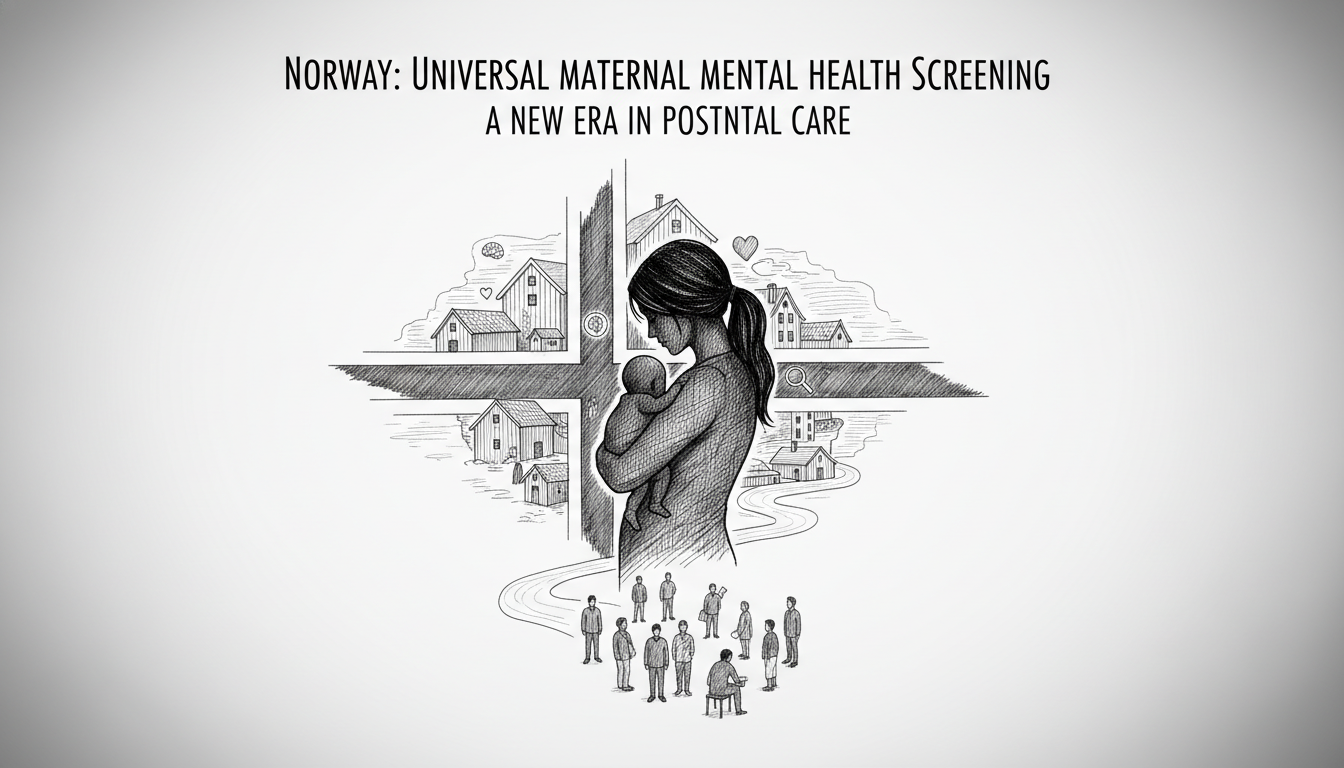Norwegian health authorities have unveiled new guidelines requiring systematic mental health screening for all new mothers. The proposal aims to identify postpartum depression and psychological distress during maternity care visits. Health Director Cathrine Lofthus confirmed the initiative in a recent announcement.
All healthcare providers will now ask standardized questions about psychological wellbeing during postnatal consultations. The approach represents a fundamental shift in Norway's maternal healthcare framework. Research indicates approximately one in eight women experience mental health challenges after childbirth.
The guidelines mandate mental health discussions during every postnatal conversation. Healthcare professionals will provide information about normal psychological reactions after delivery. They will also address factors that can either support or hinder mental recovery.
Health Minister Jan Christian Vestre expressed confidence in the proposal's potential impact. He stated that systematic follow-up will enable better detection and prevention of maternal mental health issues. The minister emphasized improved treatment pathways as the ultimate goal.
This policy change reflects Norway's growing focus on preventative healthcare measures. The country already provides extensive parental leave benefits and child welfare services. Adding mental health screening completes a comprehensive support system for new families.
Norwegian maternal healthcare typically includes multiple postnatal checkups during the first year. These visits occur at local health stations across municipalities from Oslo to Bergen. The new mental health component will integrate seamlessly into existing protocols.
International readers should understand Norway's universal healthcare model. All residents receive free medical care through the national insurance scheme. This includes complete maternity and mental health services without direct costs to patients.
The proposal now enters a standard consultation period with healthcare stakeholders. Medical professionals, patient organizations, and regional health authorities will provide feedback. Final implementation likely requires approval from the Norwegian Directorate of Health.
This initiative aligns with broader Nordic approaches to family welfare. Sweden and Denmark already incorporate mental health components in postnatal care. Norway's proposal brings its system in line with regional best practices.
The economic implications remain manageable within Norway's robust healthcare budget. Early intervention typically reduces long-term treatment costs. Better maternal mental health also supports workforce participation and economic productivity.
Norwegian politics often prioritize family welfare policies across party lines. The current government maintains strong parliamentary support for healthcare initiatives. This consensus suggests smooth adoption of the new screening requirements.
Postpartum depression represents a significant public health challenge worldwide. Norway's systematic approach could provide valuable lessons for other healthcare systems. The data collected may inform global best practices in maternal mental health.
The timing coincides with increased attention on women's healthcare in Norway. Recent debates have focused on improving access to specialized services. This mental health initiative addresses one identified gap in current provision.
Healthcare professionals welcome the standardized screening approach. Consistency across municipalities ensures equal care quality from Finnmark to Vestfold. The guidelines provide clear protocols for identifying at-risk mothers.
Implementation will require additional training for some healthcare workers. Norway's well-developed continuing education system can accommodate this need. The transition period allows for gradual adoption across all health stations.
New mothers in Norway already benefit from extensive support networks. The addition of mental health screening strengthens this safety net further. The approach demonstrates Norway's commitment to holistic family wellbeing.

